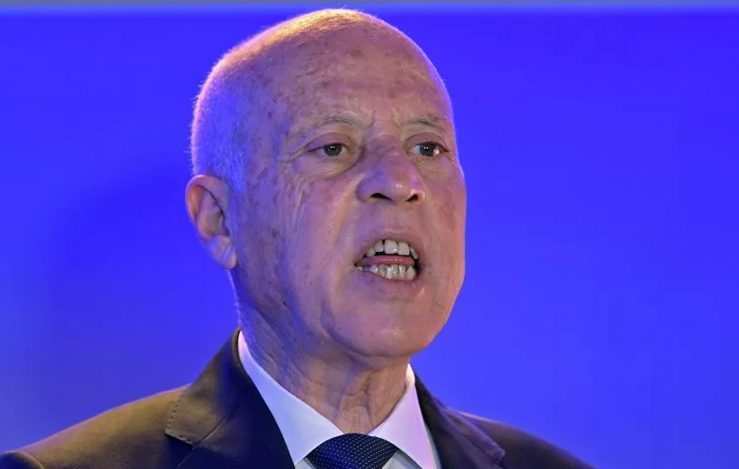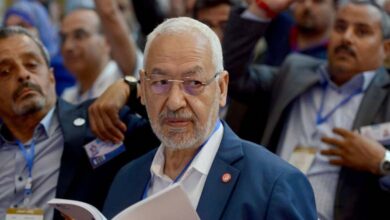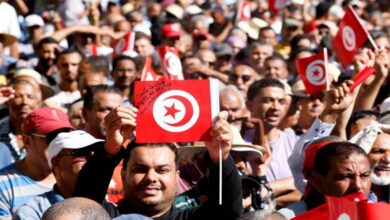Saied reaffirms Tunisia’s commitment to its sovereignty… and this is his proposal to overcome the crises

After recent negotiations between Tunisia and the International Monetary Fund (IMF) stumbled on “unfair” conditions, Tunisian President Kais Saied proposed a new tax on people who benefit from subsidies “unjustly,” he said.
During a meeting with Tunisian Foreign Minister Nabil Ammar yesterday in Carthage Palace, Saied stressed “Tunisia’s adherence to its sovereignty and the constants of its foreign policy, the most important of which is its refusal to interfere in its internal affairs, ” adding that “We also refuse to interfere in the affairs of others, we refuse to let anyone interfere in our affairs, because our affair stems from the will of our people”.
Saied reiterated that Tunisia has a history that is richer than other countries in terms of rights and freedoms.
The Tunisian people, who rose up and revolted for freedom and national dignity, will never accept going back, Saied said, adding that Tunisia “is capable of giving lessons, not receiving lessons from anyone.”
The Tunisian government subsidizes basic consumer items such as fuel, bread, coffee, sugar and rice.
During a meeting with Interior Minister Kamal el-Fiqqi, National Security Director General Mourad Saidan and National Guard Commander Hussein Gharbi, the Tunisian president stressed “the need to preserve civil peace and confront all those who try to harm it, whether through monopoly, illegal speculation or provoking crisis after crisis, as has happened and is still happening in a number of sectors.”
During the meeting, Saied said, “There is no room to touch the people’s forces,” stressing the need to confront all challenges to preserve the homeland and the state.
Earlier in April, the Tunisian president announced his rejection of the IMF’s “dictates” and stressed the need to “rely on ourselves” to overcome the country’s crippling financial and economic crises.
The country’s basic supply of fuel, grains, and coffee is in short supply, and the Tunisian economy faces high inflation of more than 10%, high unemployment of more than 15%, and a debt ratio of around 90% of GDP.












